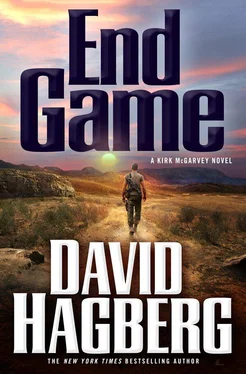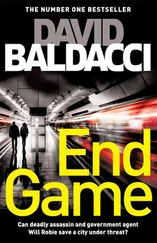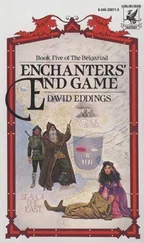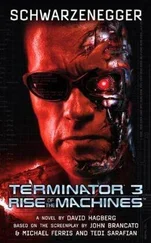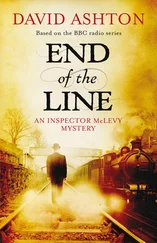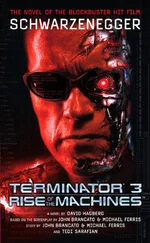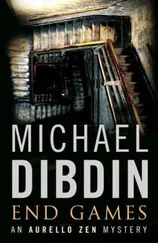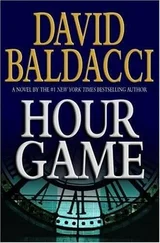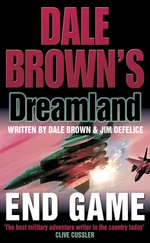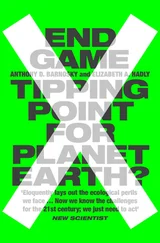“Here’s Ms. Unroth at last,” the general said.
Alex stopped just inside the study door, her eyes locked on Yarviv’s.
“Are you okay?” McGarvey asked.
She didn’t reply.
“Alex?” Mac prompted.
She shook her head. “It’s not him. He’s not George.”
“Of course not,” the general said. “Your George died years ago in prison. Cancer.”
“Who answered my message?”
“As SOP, we keep a continuous lookout for any pro phrase messages no matter how long they’ve been out-of-date. Every now and then one like yours turns up.”
“Then who’s the killer?”
“I don’t know.”
“Who was the shooter in Paris?”
“Sûreté identified him as a British contract killer,” McGarvey said.
The play of emotions on Alex’s face was amazing, almost heartbreaking to watch. Everything she had worked for, just about everything she had feared the most, had been laid bare for her. Suddenly there was no meaning.
“Mossad did not hire him,” Sharon said.
“Neither did Aman,” Smith said.
“He’s still at Langley,” McGarvey said. He had almost all of it now. “Leaves us with finding out the why before we can identify him.”
“No need to stop the bastard; he’s already taken out everyone except me,” Alex said. “I just have to go deep, providing they’ll let me out of Israel.”
Sharon started to object, but Yarviv motioned him off. “My dear girl, you and Mr. McGarvey and Ms. Boylan are free to go at any time you wish. This moment, if that’s what you want.”
“She hurt one of my people,” Sharon said.
“She could have killed her, Lev.”
“We still need the what,” Pete said. “I mean, what was all this about?”
“Would you like to tell her, Ms. Unroth?” the general asked. “From what I understand, it was you and your people who moved the thing.”
Alex sat down in one of the wingback chairs, her knees drawn up. McGarvey thought she looked like a little girl at that moment. Not the trained killer she was.
“Roy all but spelled it out for you on the fourth panel,” she said, her voice small.
Everyone held their silence.
“Everyone was rabid to find a WMD to justify the war when no justification was needed. Saddam was a monster. He’d used gas against his own people, just like the Syrians have done. We had plenty of provocation.”
She looked at the general.
“They sent us behind the lines to soften them up, which we did, but then George came, and it was a game changer. He showed us where you guys buried the thing—”
“No,” Yarviv cut her off. “We didn’t bury it. Major Ya’alon — your George — got a message left at one of our letter drops in Damascus from a contact in Hussein’s Mukhabarat. Gave us the GPS coordinates of something interesting buried in the hills above Kirkuk. He volunteered to go out there to find out what it was. I think it unhinged him.”
“Who put it there if not your people?” Alex shouted.
“I don’t know. We never found out.”
“You didn’t want to find out,” McGarvey said.
“No.”
“There were no markings on it, and I’m not enough of an engineer to tell anyone with certainty whose design it was, but the only two possibilities, I think, would be us or the Russians. And besides Israel, we had the most to gain.”
Sharon had become agitated. “I’m sorry, General, but I don’t know if I want to hear this. Especially not if it’s what I think it is.”
“There were rumors,” Smith said. “I agree with Lev. Maybe we should just let sleeping dogs lie.”
“It was a small nuclear weapon,” Alex said. “A demolition device designed to take out dams, bit bridges, major installations, things of that nature that ordinary explosives or even nonnuclear air attacks couldn’t handle.”
“A suitcase bomb,” Pete said.
“But it wasn’t in an aluminum case; it was in a heavy canvas bag. I think the damned thing weighed seventy-five or eighty kilos. Took two of us to pull it out of the hole and move it.”
“No markings?” McGarvey asked.
“None I personally took the time to look for, if you mean serial numbers or writing in English or Russian.”
“How do you know it was a bomb?” Sharon asked.
Alex just looked at him. “Please,” she said. “Maybe the physics package was lead instead of plutonium or U-235—we didn’t have a Geiger counter to see if the thing was leaking — but there was no mistaking what it was, and the reason it had been out there. It was meant for our team to find it and blow the whistle. ‘Hey, look, world! The bastard did have a WMD after all!’”
“Why didn’t you guys do just that?” McGarvey asked, and he thought he knew this answer too.
“Our orders changed. Maybe someone got cold feet.”
“Or came to their senses,” Pete said.
“Or that,” Alex agreed. “Anyway, we had a little less than a month with George before he suddenly slipped away one evening, and the next day we got the burst transmission to move the damned thing.”
“You radioed that you had found it?” Pete asked.
“No, and that was the odd part. We’d agreed to keep the thing a secret. I think it was Larry’s idea to begin with. We had quite a discussion about it. I was all for letting the chips fall where they may. We were in the war because Saddam Hussein had WMDs, and he could be allowed to continue. God only knew what would happen in the region, especially if the nuclear genie got out of the bottle.
“But Larry kept harping on the unintended consequences that the CIA seemed really good at engineering for itself. ‘Like the Bay of Pigs,’ he said. ‘Look where the hell that got us. We’re still dealing with that mess. Think what this would do.’
“He insisted that we rebury the thing, and when it came time for our debriefing, we wouldn’t bring it up first.”
“No one did,” Pete asked.
“No. Not in Ramstein, and not later at the Farm.”
“Who sent you the order to move it?” McGarvey asked. “Did you ever know?”
“Of course. It was our original control officer, Bertie Russell.”
“I thought he was killed in Iraq.”
“That was a year later,” Alex said. “But when we got to Ramstein, he was there, and the thing was, he never brought up George’s name, nor did he even hint at his order to move the device.”
“So you kept your mouths shut, and afterward you split up and tried to go deep,” McGarvey said. “Why was that?”
“Come on. You know what we were facing. If the device had been found, it would have been traced back to someone — probably us — and the political fallout would have been devastating.”
“I thought the thing was supposed to be found,” Pete said. “Wasn’t that the whole idea?”
“It was meant to be detonated.”
At Langley, Otto was seated at his desk, his eyes gritty, his energy all but gone. Time to go home and get some sleep. It seemed to him he had been working around the clock since this business had begun.
Louise had called a couple of hours ago to ask how he was doing and when he’d be home.
“Soon as I hear from Mac. He said he’d call after they cleared Israeli airspace.”
“You have the bone in your teeth — I can hear it,” Louise said. “Are we any closer to making this a done deal?”
“Depends on what they managed to find out, and whether or not Alex is in jail or has been shot to death. And right now that’s too close to call.”
“She’s not the killer? For sure?”
“For sure,” Otto said. “At least not the one we’ve been looking for.”
“Somehow that’s not very comforting.”
“I’ll be home soon as I can. Maybe we can get this thing settled in the next twenty-four hours and take a vacation somewhere.”
Читать дальше
